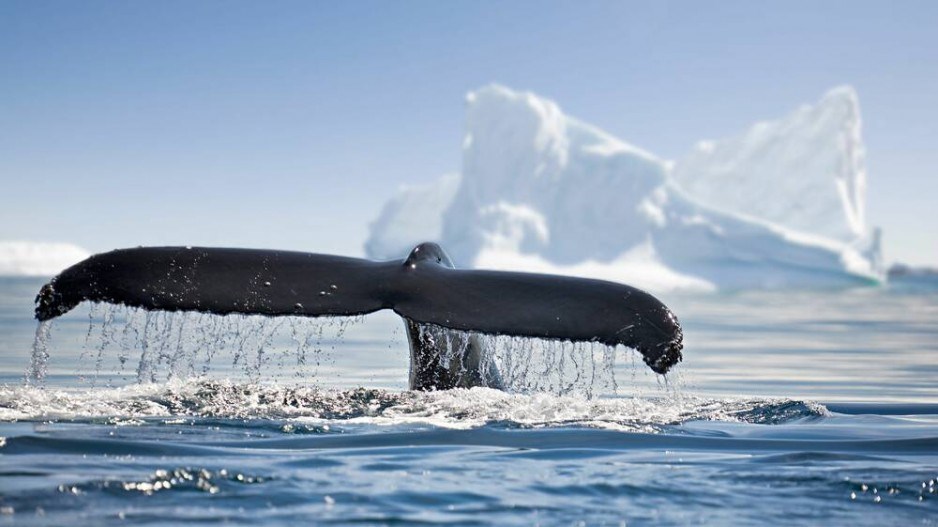Marine researchers are diving into the world of artificial intelligence to help solve an invisible problem: noise pollution, and the effect it has on local marine life.
Non-profit organization Clear Seas is researching how machine learning can help reduce the noise emitted from ships, with the goal of creating an underwater vessel that will tune and adjust its noise to adapt to whatever marine mammal, especially in regards to whales, is nearby.
“Normally engineers design ships based on requirements set for them by regulatory agencies and by law, and so our concept is to say, let’s try and get them to design the ships in a way that the whales would want them to. Where the whale is the customer,” said Paul Blomerus, executive director of Clear Seas.
Essentially, said Blomerus, the goal is to create a ship that will “think” like a marine mammal.
Blomerus and a raft of other Clear Seas researchers, comprising marine biologists and engineers, met with other experts from across the country at a workshop June 1-2 to discuss the possibility of such a futuristic endeavour, and what would be required to make it happen.
Creating such a ship is a complicated process, he said, because it’s not just the level of the sound that needs to be considered, but the frequency of it too, which can shift depending on the circumstances.
Sound waves can get bent and distorted by temperature changes in the ocean, meaning that the sound the whale hears might not always be the sound that is emitted by the ship.
“You actually have to be a bit more sophisticated about it, and tune the noise that we make to make sure it avoids the frequencies that the whales have,” he said.
The idea is still very much in its concept phase, said Blomerus, and actually having a smart adaptive ship powered by AI that can perfectly tune its noise to every single situation is still at least 10 years in the making.
In the meantime, however, there are interim ideas.
“A shorter term answer is creating a ship that has just two modes of operation, one being an eco mode – which uses the least amount of fuel – and a second mode, a quiet mode, which it can switch to when it encounters whales.”
Blomerus said it is encouraging to see there is a growing awareness of the problems affecting marine life – noise made underwater can drown out sounds marine mammals use and rely on to communicate with one another, find food, navigate, or avoid danger – and a desire to help amend those problems, when there hasn’t been previously.
“It’s only now that we’ve become aware of the impact we’ve had and started to work on it,” he said. “When engineers and scientists put their mind to it, there’s a lot that can be done here."
Keiran D. Cox, a Liber Ero and NSERC Postdoctoral Fellow at Simon Fraser University, said globally "people are waking up to noise pollution as an issue," but much of the work carried out so far has focused on marine mammals, when fish invertebrates should also be included in that dialogue.
Last year Cox created an online database, Fish Sounds, that catalogued the mating, communicating and foraging sounds of hundreds of fish, with the aim of better understanding how they fit into the sound landscape, and how human activity in the marine environment can impact the quality of their existence.
“We have hundreds of species in Canada that are creating noise and using that soundscape that are not marine mammals,” he said. “Noise is a relatively new topic in the marine environment, and we’re only now learning how it is an incredible mechanism used by fish for moving and being social. We want to provide them with the space to communicate effectively.”
Currently Cox is working on a project that looks into how kelp forests can provide refuge for noise pollution events. He's also mapping vessel traffic along the coast to determine how much noise is being emitting in local waters. The data will be released openly so everybody can have access to it, can "have a conversation about the direction we're going, and how we can modify our behaviours or actions to try to reduce noise pollutant levels in certain ways.”
Like Blomerus, Cox said he has high hopes for what can be achieved in terms of preserving ocean soundscapes in the future.
“I’m really optimistic about noise pollution, the public dialogue has shifted on it, people are aware of the problem, and the industries are keen to collaborate and improve.”
Mina Kerr-Lazenby is the North Shore News’ Indigenous and civic affairs reporter. This reporting beat is made possible by the Local Journalism Initiative.




